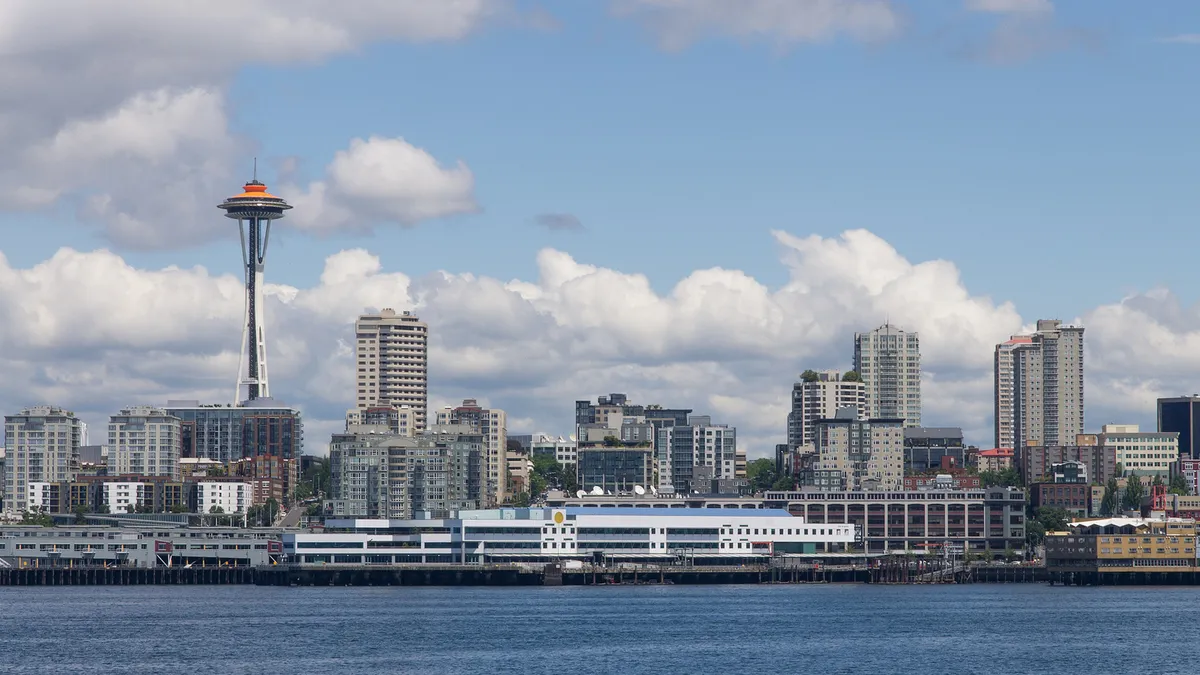Dive Brief:
-
The San Francisco Bay Area and Seattle again took the top two spots, respectively, of CBRE Group’s annual ranking of tech talent markets in North America. Washington, DC landed the No. 3 spot (up from No. 4 in 2017) while Toronto sits at No. 4 (up from No. 6) and New York City comes in at No. 5 (down from No. 3).
-
The research highlights job growth acceleration across 50 markets, total annual operating costs for a typical 500-person tech company, and tech wage to apartment rent ratios to show how tech job growth drives demand in real estate.
-
The commercial real estate and investment firm used 13 metrics to measure each market’s depth, vitality and attractiveness for companies seeking tech talent and tech workers seeking employment.
Dive Insight:
Aside from predictable high-scorers like the Bay Area and Seattle, Toronto — which jumped three spots in the rankings from 2017 — appears to be one of the biggest winners from CBRE’s 2018 technology talent rankings. Of the top five, Toronto is the only city where estimated annual operating costs for a typical 500-person technology company falls under $50 million. On top of that, Toronto was the fastest growing tech talent market last year, adding 28,900 tech jobs and becoming North America’s most viable "brain gain" — cities that create the more tech jobs than tech graduates.
CBRE’s numbers, along with comparatively cheap labor and real estate, and a well-educated workforce, make Toronto all the more enticing for tech companies to house operations there. For months, the city has been in the running for Amazon’s coveted HQ2 selection and Sidewalk Labs partnered with Toronto on its "digital city" venture, Sidewalk Toronto, launching this summer.
Along with Toronto, Washington, DC moved up in CBRE’s rankings, due in part to concerted efforts to draw tech talent. Last summer, Mayor Muriel Bowser launched The Lab @ DC, which has worked to translate scientific research into actionable policy and promote citywide resiliency. Also, the Greater Washington Partnership, a group of regional CEOs, plans to establish a set of credentials for workers that will be seen as unique by employers seeking tech talent.
CBRE’s report also notes the mounting "supply, demand and the quality conundrum." Balancing the number of tech degree graduates with tech talent job creation is difficult as quality tech talent becomes costlier. This is merely one of a multitude of affordability concerns facing smart cities including infrastructure advancements, brokering public-private partnerships and budgeting pilot programs.
While tech hubs do attract talent, jobs and big brand headquarters, a high CBRE ranking can come with some drawbacks. Seattle and the Bay Area have struggled with gentrification, rent disparities, homelessnes, and skepticism surrounding exhaustive data collection. As Washington, DC and Toronto — among the other highly-ranked cities — expand their tech talent markets, they must simultaneously launch initiatives to combat such problems and face the affordable housing crisis.










